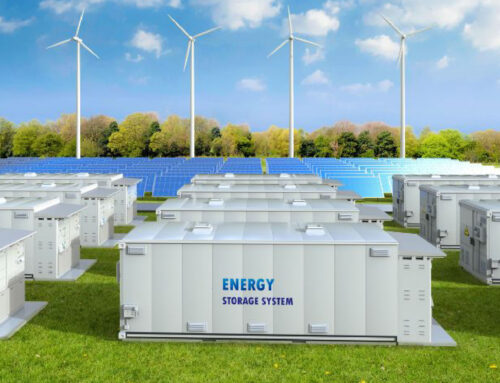
To reduce the economy’s carbon intensity, schemes with incentives for clean energy generation and consumption are needed, and establishing such schemes will be a priority for NITI Aayog, according to vice-chairman Rajiv Kumar.
Kumar stated in an interview that the federal policy think tank will prioritize the green transition in 2022. This requires putting in place policies that encourage the development and use of clean energy while also lowering the economy’s carbon impact.
Clean energy incentives are expected to provide a good signal to both producers and consumers in the market. Under this program, policymakers will pay attention to waste-to-energy initiatives and plans for manufacturing green hydrogen.
One plan that NITI Aayog will design this year is compressed biogas production from agricultural or urban trash.
“I’d like NITI Aayog to lead the way in developing a framework for that,” she says “Kumar stated his opinion. According to him, the suggested approach may provide financial incentives based on biogas production rather than as a capital subsidy for the project. “If you attach it to their performance, which can give them fiscal incentives depending on their generation, compressed biogas has the potential to drastically alter the nature of the green transition,” says one expert “Kumar stated his opinion. He described it as a waste-to-energy concept utilizing cutting-edge technology.
“The point is that waste-to-energy has the potential to be a huge deal for India, solving both the green transition and the clean-up problem. He claims that the entire Ghazipur landfill (in Delhi) might be liquidated, as has been done in Indore with legacy landfills.
In the wake of rising prices and reduced supply, the country aims to cut fossil fuel consumption, according to Kumar. This necessitates a substantial rise in the economy’s green fuel supply. Kumar emphasized the importance of hydrogen as a fuel in this context, citing the favorable influence it may have on energy-intensive manufacturing industries like steel, fertilizers, and cement.
“The NITI Aayog will be heavily involved in this. That, we believe, has a bright future. This is a different project “According to Kumar, the think tank will collaborate closely with the ministry of new and renewable energy. “We’ll devise strategies for accelerating the changeover and growing output,” he says “stated Another important area where the NITI Aayog will focus is the promotion of natural farming, which could aid in carbon sequestration, or the capture of carbon dioxide from the atmosphere.
Given Prime Minister Narendra Modi’s support for the idea, Kumar believes the moment is right to give natural farming a significant push and expand it to all states. “Around 30 lakh farmers are now practicing it in 11 states.”
In the next three years, the goal must be to reach one crore farmers. At the same time, we must approach it with a nurturing attitude. You can’t make it mandatory. That isn’t going to work. Handholding will help you gain confidence “he stated At a climate summit last year, Modi set the target of India having net zero emissions by 2070. Natural farming is the polar opposite of chemical fertilizer farming, which releases carbon into the atmosphere.
“When you farm naturally, you capture carbon. That is a significant benefit. It also cuts water consumption by at least a quarter. Arid places can also be used to raise crops” Kumar stated his opinion.
Click Here for more updates Ornatesolar.com
Resource: Business Standard








Leave A Comment